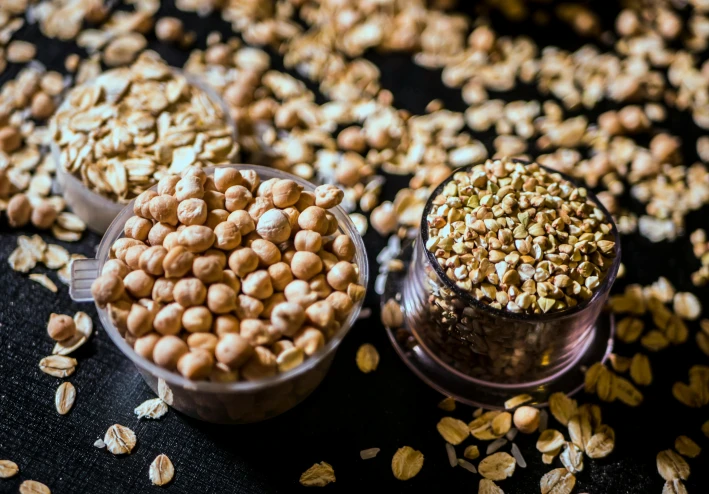
The Power of Whole Grains
The Power of Whole Grains
Whole grains have been a dietary cornerstone for centuries, revered across cultures for their ability to nourish and sustain the body. Unlike refined grains, which are stripped of their nutrient-rich bran and germ during processing, whole grains retain all parts of the kernel, making them a powerhouse of vitamins, minerals, fiber, and antioxidants. From boosting heart health to stabilizing blood sugar, whole grains offer a myriad of benefits that go beyond basic nutrition. Let’s explore why these humble seeds deserve a permanent place on your plate.
What Are Whole Grains?
Whole grains include the entire grain kernel:
Bran: The fiber-rich outer layer.
Germ: The nutrient-packed core, loaded with vitamins and healthy fats.
Endosperm: The starchy middle layer.
Common varieties include oats, quinoa, brown rice, barley, farro, bulgur, and whole wheat. Each offers unique flavors and nutritional profiles, but all share remarkable health-promoting properties.
7 Science-Backed Benefits of Whole Grains
1. Digestive Health: Fuel for Your Gut
Whole grains are packed with dietary fiber, both soluble and insoluble, which:
Promotes regular bowel movements, preventing constipation.
Feeds beneficial gut bacteria, enhancing microbiome diversity.
Reduces the risk of colorectal cancer and inflammatory bowel diseases (IBD).
Key players: Beta-glucan (in oats), arabinoxylan (in wheat).
2. Heart Health: Shielding Your Cardiovascular System
Regular consumption of whole grains is linked to a 25% lower risk of heart disease (American Heart Association). Their benefits include:
Lowering LDL (“bad”) cholesterol via soluble fiber.
Reducing blood pressure due to magnesium and potassium.
Preventing plaque buildup with antioxidants like polyphenols.
Pro tip: Swap white rice for quinoa or barley to boost heart-protective nutrients.
3. Blood Sugar Control: A Natural Diabetes Fighter
The slow-digesting fiber in whole grains prevents rapid spikes in blood sugar, making them ideal for managing or preventing type 2 diabetes:
Studies show a 20–30% reduced diabetes risk in whole-grain eaters.
Magnesium in whole grains improves insulin sensitivity.
Best choices: Oats, rye, and buckwheat.
4. Weight Management: Stay Fuller, Longer
Whole grains are a dieter’s ally:
High fiber content increases satiety, curbing overeating.
They have a lower glycemic index than refined grains, stabilizing hunger hormones.
Nutrient density ensures you’re nourished even while cutting calories.
5. Anti-Inflammatory and Antioxidant Properties
Chronic inflammation is linked to diseases like arthritis, cancer, and Alzheimer’s. Whole grains combat this with:
Polyphenols: Fight free radicals and oxidative stress.
Lignans: Plant compounds with anti-cancer properties (especially in rye and oats).
Selenium (in brown rice): Supports immune function.
6. Brain Health: Boosting Cognitive Function
The B vitamins (B1, B6, folate) and iron in whole grains:
Enhance memory and focus.
Reduce the risk of age-related cognitive decline.
Support neurotransmitter production for mood regulation.
7. Longevity and Disease Prevention
A 2023 Harvard study found that people who ate 3+ servings of whole grains daily had a 17% lower risk of premature death. Their role in preventing chronic diseases includes:
Cancer: Fiber binds to carcinogens in the digestive tract.
Stroke: Magnesium and potassium improve blood vessel function.
Osteoporosis: Phosphorus and manganese strengthen bones.
How to Incorporate Whole Grains Into Your Diet
Start small: Replace refined grains gradually (e.g., white bread → whole-grain bread).
Experiment: Try ancient grains like freekeh or teff in salads.
Breakfast: Opt for oatmeal or whole-grain cereal.
Snacks: Air-popped popcorn or whole-grain crackers with hummus.
Debunking Myths About Whole Grains
Myth: “Carbs in grains are unhealthy.”
Truth: The complex carbs in whole grains are digested slowly and provide sustained energy.
Myth: “Gluten-free means healthier.”
Truth: Unless you have celiac disease, whole grains like wheat are nutritious and safe.
Final Thoughts
Whole grains are nature’s medicine, offering a simple yet profound way to heal and protect your body. Whether you’re aiming to improve digestion, safeguard your heart, or simply eat more mindfully, these nutrient-dense foods deliver results. As Hippocrates once said, “Let food be thy medicine”—and whole grains are a prescription worth filling.































